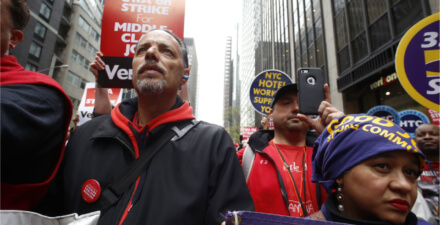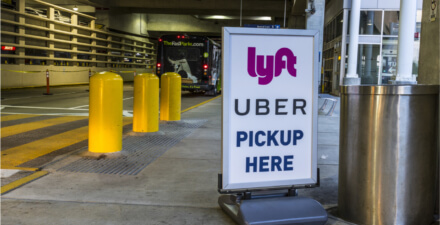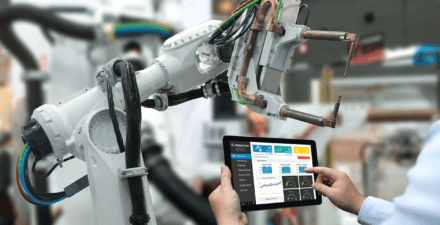Brad DeLong: Worthy reads on equitable growth, August 26–30, 2019
Worthy reads from Equitable Growth:
- Read Alexander Hertel-Fernandez, William Kimball, and Thomas Kochan, “How U.S. Workers Think About Workplace Democracy: The Structure of Individual Worker Preferences for Labor Representation,” in which they write: “Although never as powerful as in other advanced democracies, unions remain incredibly important economic and political organizations in the United States. Yet we know little about the structure of workers’ preferences for labor unions or other alternative labor organizations. We report the results of a conjoint experiment fielded on a nationally representative sample of more than 4,000 employees. We explore how workers’ willingness to join and financially support labor organizations varies depending on the specific benefits and services offered by those organizations. While workers value some aspects of traditional American unions very highly, especially collective bargaining, they would be even more willing to join and support organizations currently unavailable under U.S. law and practice. We also identify important cleavages in worker support for labor organizations engaged in politics and strikes. Our results shed light on the politics of labor organization, as well as civic association and membership more broadly.”
- Read Raksha Kopparam, “The Federal Reserve’s new Distributional Financial Accounts provide telling data on growing U.S. wealth and income inequality,” in which she writes: “The Federal Reserve Board … Distributional Financial Accounts … provides quarterly estimates of wealth distribution in the country from 1989 to 2019. The new dataset was created by integrating the Federal Reserve Board’s Financial Accounts with the Survey of Consumer Finances. Together, they contain reliable measures of the distribution of household-sector assets and liabilities from 1989, which gives policymakers and economists alike new insight into how the distribution of wealth has changed since the 1990s.”
- Read Korin Davis, “Equitable Growth invests $1.064 million in advancing research on inequality and growth.”
Worthy reads not from Equitable Growth:
- We have a social insurance system in which employers play a large role as intermediaries between individual workers and the government. We have such a system in large part because right-wingers in the 1920s argued that you did not need government-provided social insurance because private employers could and would step up to the task in order to boost the morale of their workers. What Uber Technologies, Inc. and Lyft, Inc. are now complaining about was originally a piece of a movement to keep government small. Thus, there is a certain historical irony in their attempt to shed their part of the social welfare mission that their predecessor entrepreneurs of a century ago assured one and all that they were eager to embrace. Read Matthew Chapman, “Uber and Lyft put up $60 million for ballot fight to avoid paying their drivers as employees” in which he writes: “On Thursday, Bloomberg News reported that ride-sharing giants Uber and Lyft are prepared to spend $60 million in support of a potential California ballot question in 2020 that would prevent their workers from being classified as employees. The push comes as the California legislature advances AB 5, which would require any workers who perform functions that aren’t outside the course of their employer’s business to be classified as an employee—codifying a decision last year by the California Supreme Court. Uber and Lyft have kept their margins low by classifying their workers as self-employed contractors who just happen to use their app as a social network to find passengers. This means that they are not covered by a number of protections that employees receive, like the right to unionize or to receive overtime pay.”
- I believe all these effects are very real. It still amazes me that we are not seeing them in aggregate productivity growth numbers. Read Sean Gallagher, “The fourth Industrial Revolution emerges from AI and the Internet of Things,” in which he writes: “IoT has arrived on the factory floor with the force of Kool-Aid Man exploding through walls … Smart, cheap, sensor-laden devices paired with powerful analytics and algorithms have been changing the industrial world … Companies are seeing more precise, higher quality manufacturing with lowered operational costs; less downtime because of predictive maintenance and intelligence in the supply chain; and fewer injuries on factory floors because of more adaptable equipment. And outside of the factory, other industries could benefit from having a nervous system of sensors, analytics to process ‘lakes’ of data, and just-in-time responses to emergent issues—aviation, energy, logistics, and many other businesses that rely on reliable, predictable things could also get a boost. But the new way comes with significant challenges, not the least of which are the security and resilience of the networked nervous systems stitching all this new magic together … And then there’s always that whole ‘robots are stealing our jobs’ thing. (The truth is much more complicated).”
- Those who are already doing well in world labor markets are able to benefit—or at least to lose less—from disruption. It is those who are not doing so well who find their inferiority of position amplified by occupation. Read Per-Anders Edin, Tiernan Evans, Georg Graetz, Sofia Hernnäs, and Guy Michaels, “The individual consequences of occupational decline,” in which they write: “Outcomes for similar workers in similar occupations over 28 years … the consequences of large declines in occupational employment … [m]ean losses in earnings and employment for those initially working in occupations that later declined are relatively moderate, [but] low-earners lose significantly more.”







